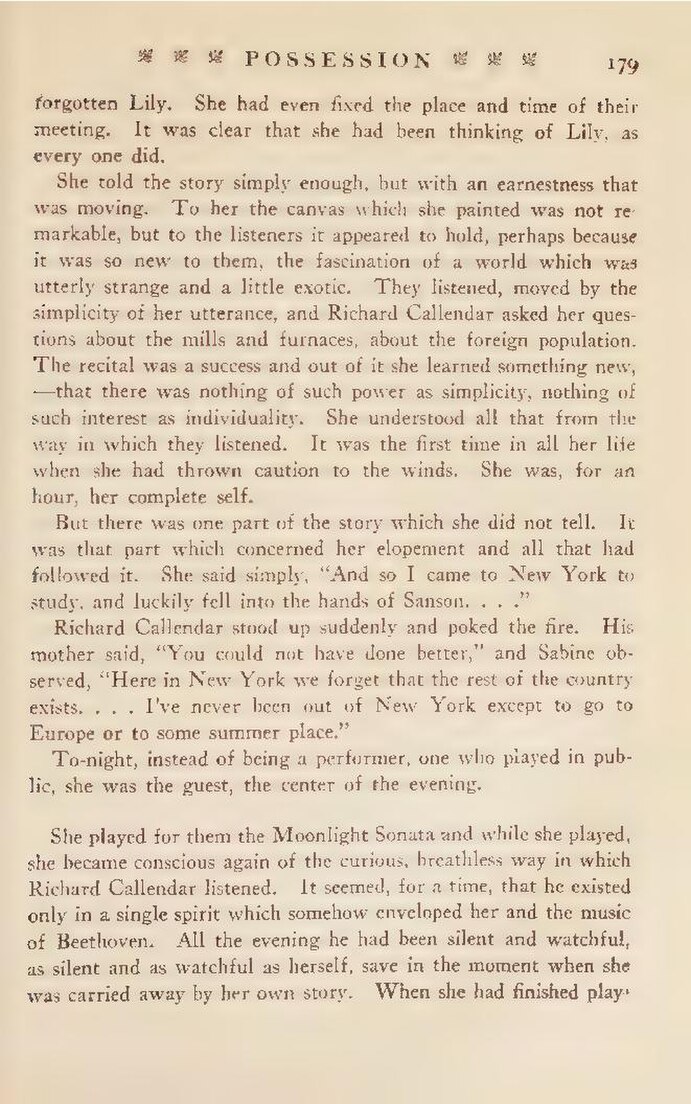forgotten Lily. She had even fixed the place and time of their meeting. It was clear that she had been thinking of Lily, as every one did.
She told the story simply enough, but with an earnestness that was moving. To her the canvas which she painted was not remarkable, but to the listeners it appeared to hold, perhaps because it was so new to them, the fascination of a world which was utterly strange and a little exotic. They listened, moved by the simplicity of her utterance, and Richard Callendar asked her questions about the mills and furnaces, about the foreign population. The recital was a success and out of it she learned something new,—that there was nothing of such power as simplicity, nothing of such interest as individuality. She understood all that from the way in which they listened. It was the first time in all her life when she had thrown caution to the winds. She was, for an hour, her complete self.
But there was one part of the story which she did not tell. It was that part which concerned her elopement and all that had followed it. She said simply, "And so I came to New York to study, and luckily fell into the hands of Sanson. . . ."
Richard Callendar stood up suddenly and poked the fire. His mother said, "You could not have done better," and Sabine observed, "Here in New York we forget that the rest of the country exists. . . . I've never been out of New York except to go to Europe or to some summer place."
To-night, instead of being a performer, one who played in public, she was the guest, the center of the evening.
She played for them the Moonlight Sonata and while she played, she became conscious again of the curious, breathless way in which Richard Callendar listened. It seemed, for a time, that he existed only in a single spirit which somehow enveloped her and the music of Beethoven. All the evening he had been silent and watchful, as silent and as watchful as herself, save in the moment when she was carried away by her own story. When she had finished play-
